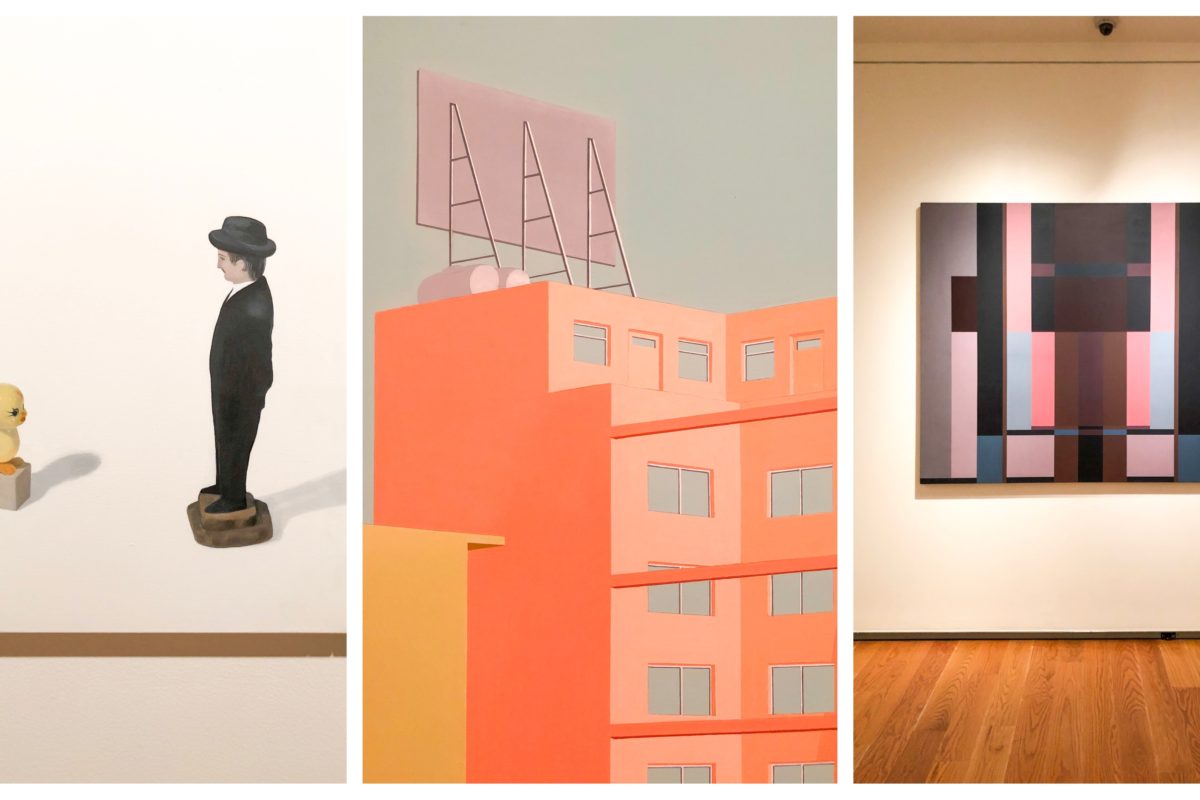
“Art_Latin_America: Against the Survey,” running at the Davis Museum at Wellesley College through June 9, offers a probing, inclusive view of Latin American artwork, centered on the museum’s collection. The complex show features 150 works by 99 artists from 12 countries and wrestles with the question of what it means, or doesn’t mean, to be a Latin American artist.
The underscores in the title are meant to insinuate inclusivity. The work in the show was either produced in Latin American countries, by Latin American artists or about Latin America. Of the artists, 25 were actually born in the United States, though many of them have Latin American heritage. The exhibition provides a comprehensive look at the culture from all perspectives, but also forces the audience to think critically about each work and the artist’s relationship to the region.
The show is divided thematically, showcasing works from the past 20-plus years in eight categories: Identity and Territory, War and Loss, Protest and Propaganda, Farmers and Workers, City and Country, Saints and Rituals, Models and Mothers, and Gesture and Geometry.
Some of the works yell their messages from the white walls of the gallery, like Ester Hernández’s “Sun Mad,” which features an eerie reimagined version of the Sun-Maid raisins box. Here the beautiful maid is a skeleton and the tagline reads “unnaturally grown with insecticides, miticides, herbicides, fungicides.” Hernández was raised by agricultural laborers in the San Joaquin Valley of California and created this piece as a reaction to the changes affecting her community and family.
Other works require more intimate reflection. “La Sagrada Familia (The Holy Family)” by Cuban-born Maria Magdalena Campos-Pons was commissioned by the Davis Museum in 1998. The eight-part photographic series consecrates the biracial identity of the artist’s family while also exploring the intimate relationships in that circle. The photographs show her son, with her husband and with her.
The installation and title of the work reference a Roman Catholic altarpiece, but the rich blue background invokes Yemaya, the Yoruba orisha of women, children and parenting. This complicated rumination on identity and family also reflects the Cuban struggle to reconcile African roots with Latin America traditions and Catholic faith with Yoruba deities.
Read the full article in The Bay State Banner.